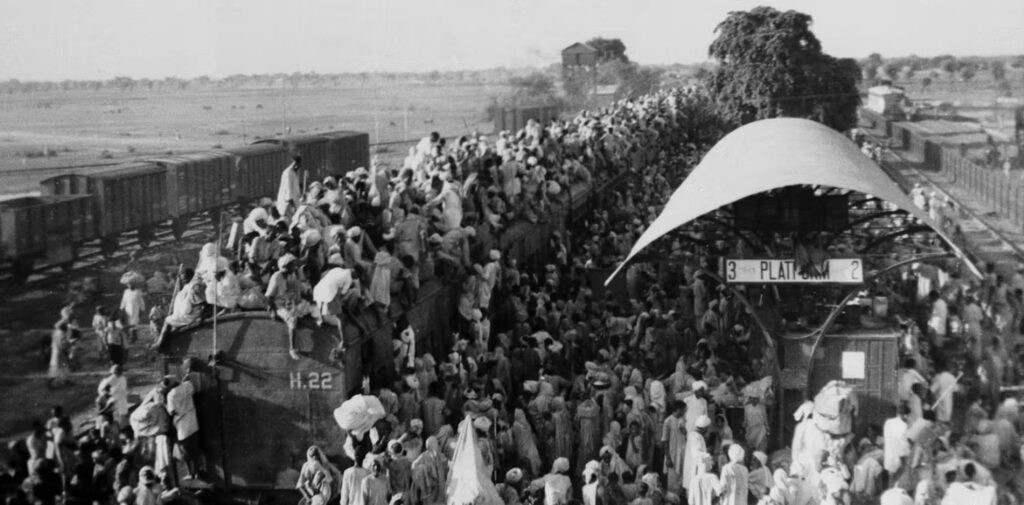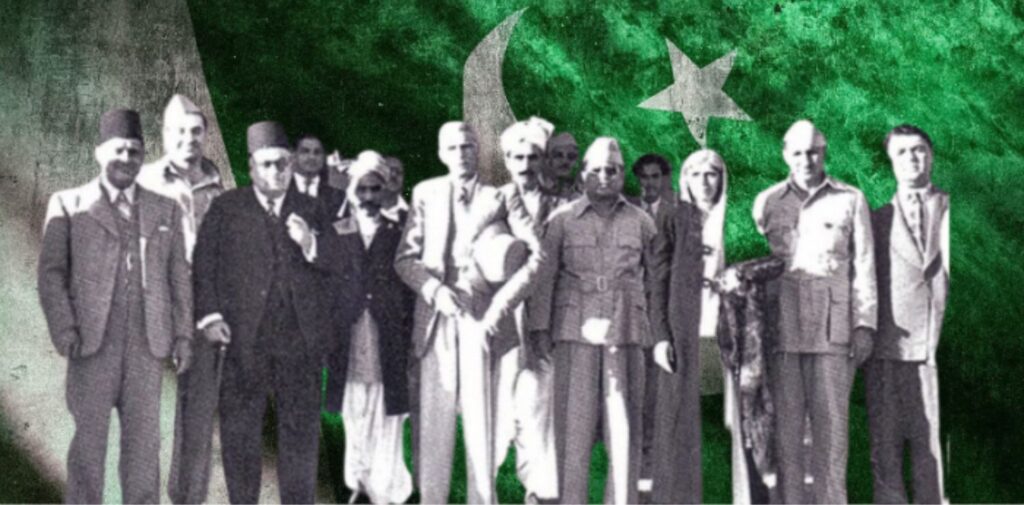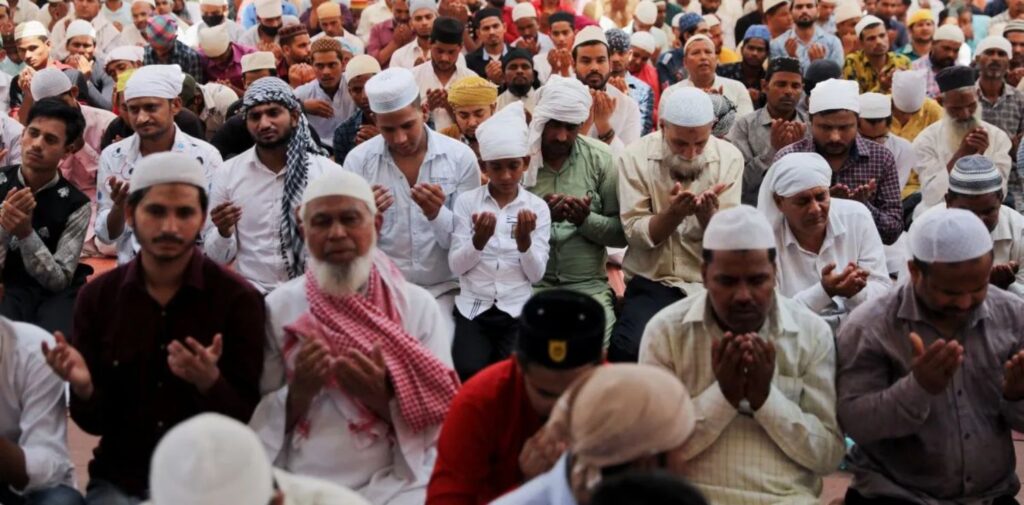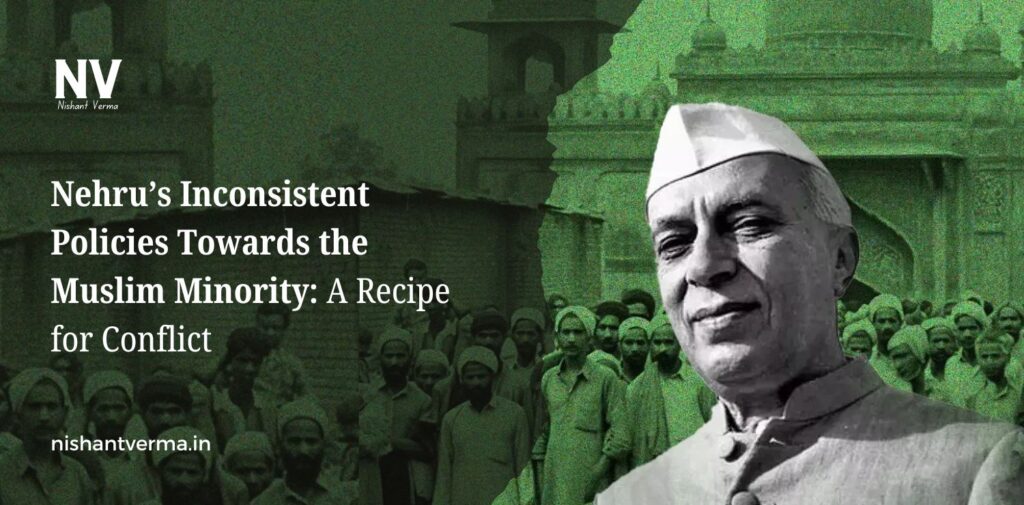India, a country known for its rich diversity, is home to people of many different religions, cultures, and communities. Among these, Muslims form one of the largest minorities, making up about 14% of India’s population today. When India gained independence in 1947, the situation was very complex, particularly regarding the relationship between the Hindu and Muslim communities. Jawaharlal Nehru, India’s first Prime Minister, faced enormous challenges in managing this delicate balance between the country’s religious groups.
Nehru’s policies towards Muslims were often inconsistent and sometimes contradictory, which contributed to lasting tensions between Hindus and Muslims in India. While Nehru promoted secularism and equal rights for all citizens, his actions and policies didn’t always reflect this ideal. This article will explore Nehru Policies Towards the Muslim Minority, and the lasting impact these had on India’s social fabric.
The Legacy of Partition and its Impact on Muslims
When India was partitioned in 1947 to create Pakistan, it led to one of the largest migrations in human history. Millions of Muslims moved to Pakistan, while millions of Hindus and Sikhs migrated to India. This mass exodus created deep wounds, as violence and bloodshed followed the division. Muslims who remained in India became a minority in a newly independent Hindu-majority nation.
The aftermath of partition shaped Nehru’s approach towards Muslims in India. Nehru, who had been a key figure in the Indian National Congress (INC) and the independence struggle, believed in a secular India where all communities could coexist. However, the trauma of partition and the challenges of nation-building made it difficult to ensure that Muslims in India were treated with the respect and equality they deserved.

Nehru’s Secularism: A Double-Edged Sword
Nehru’s vision for India was built on the idea of secularism. Secularism, in this context, meant that religion should have no influence on politics, and all citizens, regardless of their religion, should have equal rights. Nehru strongly believed that India should not have an official religion, and he wanted to ensure that Muslims, along with other minorities, could live peacefully without the fear of religious persecution.
However, Nehru’s secularism was often inconsistent. On one hand, he took steps to protect Muslims by ensuring that their rights were enshrined in the Indian Constitution, which guarantees religious freedom and equality for all citizens. On the other hand, Nehru’s policies sometimes seemed to favor the Hindu majority or ignored the concerns of the Muslim community.
For example, Nehru did not push for the reforms that could have made the Muslim community more equal to the Hindu majority, especially in the areas of personal law and education. While the Hindu community had a more uniform legal system, Muslims followed separate personal laws related to marriage, inheritance, and family matters. Nehru’s reluctance to address these issues fully created a sense of separation and inequality among Muslims.
The Muslim League and the Partition Fallout
Nehru’s policies towards Muslims were also influenced by the legacy of the Muslim League, the political party that led the demand for Pakistan. The partition had created deep mistrust between Hindus and Muslims, and the Muslim League’s demand for a separate nation had left a lasting scar. The creation of Pakistan was seen by many as a victory for Muslim separatism, and Nehru had to manage the delicate situation of Muslim loyalty to India in this context.
While Nehru believed in an inclusive India, many of his policies didn’t go far enough to address the fears and concerns of Muslims who had remained in India. Some felt that Nehru was too focused on pleasing the Hindu majority and that Muslims were left with little political power or influence. The Congress Party, under Nehru’s leadership, remained dominated by Hindu leaders, and the Muslim community felt underrepresented in India’s political and social life.

Economic Disparities and Educational Backwardness
One of the biggest issues facing the Muslim minority in post-independence India was economic and educational backwardness. Nehru’s policies aimed at industrialization, economic growth, and poverty reduction were often not inclusive enough. While Muslims played a role in India’s workforce, their economic status remained largely unchanged for decades.
Muslims were often relegated to lower-paying jobs or small businesses. Many were unable to access quality education or government jobs, which contributed to a cycle of poverty and disempowerment. Nehru’s government did not implement specific policies to uplift the Muslim community, despite the fact that Muslims were one of the most marginalized groups in the country. His general economic policies did not directly address the needs of Muslim communities, and as a result, many Muslims continued to live in poverty.
The educational system, too, did not cater to the needs of Muslim children. There was a lack of schools, especially in rural areas, that could provide quality education to Muslim children. Even when they did receive education, the curriculum often ignored Muslim history, culture, and contributions to India’s development. This lack of inclusion in the educational system contributed to a sense of alienation among Indian Muslims.
Nehru’s Response to Muslim Concerns
Throughout his tenure, Nehru made occasional attempts to address the concerns of Muslims, but these efforts often fell short. One of his major efforts was the formation of the National Integration Council, which was meant to ensure harmony between different religious and social groups. Nehru’s government also took steps to ensure that Muslims could freely practice their religion and that religious discrimination was officially outlawed.
Despite these attempts, Muslims often felt that the government was not doing enough to address their specific concerns. For example, the issue of Urdu, a language spoken by many Indian Muslims, became a flashpoint. In some states, the promotion of Hindi and the decline of Urdu created tensions, as many Muslims saw this as an attack on their cultural identity. Nehru, who was a strong proponent of Hindi as the national language, did not take a strong enough stand to protect the cultural and linguistic rights of Muslims.
In the political arena, Nehru’s government did not provide adequate representation for Muslims. Though there were a few prominent Muslim leaders, such as Maulana Azad, who held important positions, the overall Muslim representation in government was low. This lack of political power left Muslims feeling disconnected from the decision-making process in the country.

The Rise of Communal Tensions
Over time, the inconsistencies in Nehru’s policies towards Muslims contributed to growing communal tensions. On one hand, Nehru’s secularism was meant to provide a level playing field for all religious groups, but on the other hand, his failure to address the specific needs and concerns of Muslims left them feeling marginalized. This led to a sense of alienation and frustration within the Muslim community.
The rise of Hindu nationalism, especially in the later years, further exacerbated these tensions. The Hindu right-wing political movements, which gained strength in the 1980s and 1990s, often used Muslim issues as a way to mobilize their base. The failure to create a more inclusive and equitable society, in which Muslims felt equally empowered, led to the growing polarization between Hindus and Muslims.
Conclusion: Nehru Policies Towards the Muslim Minority
Nehru policies towards the Muslim minority in post-independence India were marked by inconsistencies, contradictions, and missed opportunities. While he promoted secularism and equal rights, his actions and decisions often fell short of addressing the unique concerns of the Muslim community. The failure to fully integrate Muslims into the economic, educational, and political spheres created a sense of alienation, which has had long-lasting consequences for communal relations in India.
The impact of these inconsistencies is still felt today, as communal tensions and debates about the place of Muslims in India continue to shape the country’s social and political landscape. Nehru’s vision of a secular and inclusive India, though noble, was not fully realized, and the Muslim minority continues to grapple with issues of representation, economic inequality, and cultural identity. A more consistent, inclusive, and just approach to minority rights might have prevented some of the conflicts that have emerged in post-independence India.




